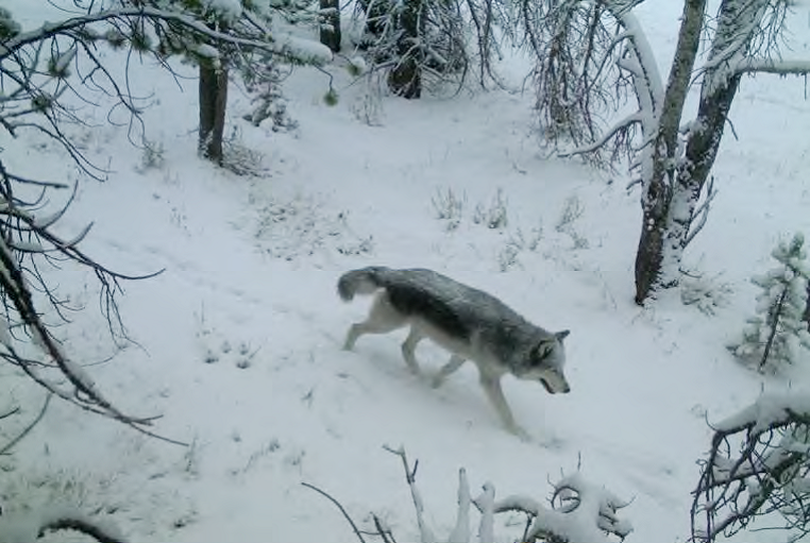Forest Service chastises Idaho for wolf collaring ‘accident’

WILDERNESS -- U.S. Forest Service officials are not amused with Idaho Fish and Game's "accidental' wolf collaring incident inside a wilderness area. You can be assured that the federal agency is getting heat from pro-wolf groups,
Here's an update by Eric Barker, outdoors writer for the Lewiston Tribune:
The U.S. Forest Service admonished the Idaho Department of Fish and Game Wednesday over the state agency’s use of helicopters to place radio collars on four wolves in the Frank Church-River of No Return Wilderness Area earlier this month.
Chuck Mark, supervisor of the Salmon-Challis National Forest, issued a notice of noncompliance to the wildlife management agency and outlined the steps it must take if it ever again wants to use helicopters in the 2.3 million-acre wilderness area.
The notice is not an enforcement action but rather documentation that the department did not adhere to the terms of the permit that was issued Jan. 6. That permit allowed state employees to land helicopters in the wilderness area as many as 126 times while placing radio tracking collars on elk.
“Helicopter landings in the Frank to collar wolves were not authorized, and constitute noncompliance with the terms and conditions of the permit,” Mark said in a news release.
Mark also said the agency must explain why wolves were targeted, participate in an “after-action review” and develop a plan to assure U.S. Forest Service officials that helicopters will not be used improperly in the future.
Wilderness advocates said the Forest Service should have been more stern with the state agency.
“They should start by citing the pilot and those involved for illegally landing helicopters in wilderness,” said George Nickas, executive director of Missoula, Mont.,-based Wilderness Watch. “Sure, they should try to investigate the whats and the whys but the fact of the matter is they obviously violated the law and ought to be cited for it.
Nickas also said Forest Service officials ought to require the agency to promise it won’t use the radio collars to kill the wolves.
The topic is controversial for multiple reasons. Motorized travel, including the landing of aircraft outside of grandfathered airstrips, is forbidden under the 1964 Wilderness Act and the Central Idaho Wilderness Act. But federal managers can make exceptions under a narrow range of circumstances. Mark made such an exception after deciding the state’s study aimed at learning why wilderness elk herds are declining will help preserve natural conditions of the area.
Wilderness Watch, Friends of the Clearwater and the Western Watersheds Project filed a lawsuit seeking to stop the state’s elk project even before it was disclosed that wolves had been collared. The groups believe Mark wrongfully granted the department permission to use helicopters in the wilderness. But the department began the work immediately and completed the collaring project before the case could be heard. Nickas said Wednesday the groups intend to aggressively pursue the case anyway.
”We are hopeful we will have this before the court sooner rather than later because potentially Idaho will be flying into the wilderness in the next few months to try to recover collars that stop working or collars when en elk is killed,“ he said. ”So we need to get this thing resolved.“
The issue is also hot because many people, such as Nickas, believe the state’s elk study is really aimed at wolves and perhaps designed to justify the future reduction of wolf packs in the wilderness area. In 2013, the department hired a trapper to kill wolves there. Several wilderness and wildlife groups filed a lawsuit to stop the trapper, but a federal judge refused to grant an injunction. The state pulled the trapper after he killed nine wolves.
